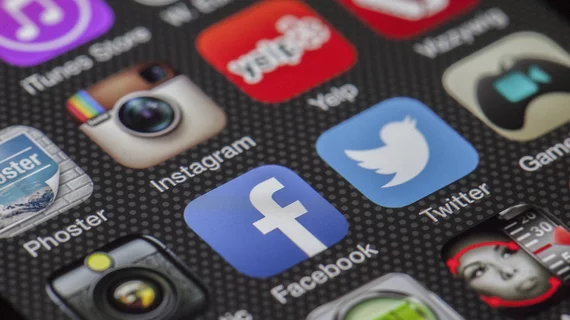Global survey finds radiology social-media users like YouTube best
The most popular social media platform among radiologists looking to keep up with the profession from around the world is YouTube, named by more than 71% of respondents in a survey that drew more than 250 representative responses from 65 countries.
Instagram is a fairly close second at 62%, Facebook a fighting third at 44%, Twitter a respectable fourth at 21% and LinkedIn a visible fifth at 16%.
Rounding out the field, albeit in also-ran percentages, are Pinterest (7%), Reddit (6%) and TikTok (4%).
Another 8% are using platforms other than the leaders and runners-up, and 2.4% aren’t using any.
The survey was conducted by radiology researchers at Johns Hopkins and is described in Current Problems in Diagnostic Radiology [1].
Senior study author Elliot Fishman, MD, and colleagues distributed a 30-item questionnaire via numerous online and email channels specific to radiology in spring of 2022.
The project’s primary objective was to tease out up-to-date ways “the global radiology community is using social media specifically for radiology education.”
All respondents but one indicated their role, and the field shook out as 42% radiologists, 25% technologists, 18% residents and 17% “other.”
The largest single block by age was comprised of 25-to-34-year-olds (n=89). Next were those aged 35 to 44 (n=47) and 45 to 54 (n=36).
As a combined group, Fishman and co-authors report, some 80.71% said they use social media “every day” or “a few times a week.”
Commenting on YouTube’s global popularity, the authors state the finding makes it safe to assume that radiology social-media users “find video content to be particularly helpful or interesting.”
Other key findings as published in the study report:
- In terms of goals for radiology education on social media, most answered “to learn more in radiology” (n=217), with “to keep myself updated on current events in radiology” (n=162), and “to participate in radiology discussions with colleagues” (n=67) also well represented.
- Almost three-quarters of respondents felt that social media was “extremely useful” or “very useful” for radiology education (n=187).
- Approximately half of respondents said they “learn much more from social media” or “learn a bit more from social media” over traditional resources such as textbooks and medical journals (n=126).
“Our results suggest that the global radiology community finds education via social media to be useful and often partakes in such education,” the authors write. “It also highlights which social media are relevant for radiology education in 2022 and which are not.”
More:
With the large number of social media platforms, educators can be intimidated by where to start or which platforms to use. Our goal is to add social media statistics to the radiology literature so that educators can better understand how to find the online radiology community in order to make the most appropriate informed decisions as to how to best provide their educational material.”
Toward that end, the researchers plan to rerun the survey every two years or so “to examine how the landscape of social media continues to change in the world of radiology education.”

